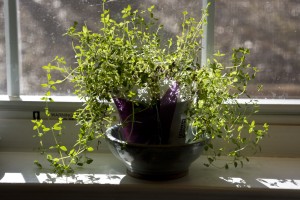
Well, you didn’t think I would have a picture of that, did you?
I was drinking coffee, enjoying the leisurely wake-up of a day off, and watching CBS This Morning when I heard it. Gayle King mentioned changing babies’ diapers and turned aside to ask Charlie Rose if he had ever changed a diaper. He answered “no.” I stopped drinking coffee. I think I repeated it aloud. I was astonished. Charlie Rose is 71 years old and he has never changed a diaper?
I know he doesn’t have kids. But how does a human being make it to 71 without this most basic act of care for another human being? I suspect girls still babysit more than boys do, and so, get more practice in this skill before they ever might have children of their own. I think King’s comment was meant, in part, to highlight the fact that women engage in this sort of domestic task more often than men, even in 2013. But still.
I am not trying to disparage Rose himself. I like him and have eagerly followed his work on multiple networks and shows. But the fact of this simply astounds me. I have not raised a child from infancy but I have changed diapers since I was in elementary school. Visiting friends and family, babysitting, family reunions, giving a tired parent an extra hand. I think of these as normal in-the-course-of-things moments when the possibility of changing a diaper can present itself. I think of myself as one of the people who can help with this when needed. I absolutely cannot imagine either never finding myself in this position or opting out of the line-up.
Let it be said, I have opted out. I have on many occasions thought to myself I know they are tired but that is a particularly smelly one and I’m going to let his parents handle it. But those have been momentary choices rather than a permanent status.
On CBS This Morning King joked that she and the third co-host, Norah O’Donnell, both mothers, had changed a lot of diapers: “We don’t mind poop.” There is a liberating matter-of-factness about dealing with someone else’s body so intimately. Routinely changing diapers for another person can raise the bar on what you consider “gross” but it can also be a peculiar blessing. I think this is the part that startles and saddens me when I consider Charlie Rose. What is it like to be 71 and have lived that apart?
To be sure, I have no idea about the contours of Rose’s life and he is mostly serving as my muse today. He could have had other experiences providing a similar connection. I had the privilege of being with my grandfather as he died. I also helped a friend as she gave birth to her daughter. In addition to the diaper-changing, I have tended to others’ bodies in these intimate ways, caring for them when they needed things they could not do for themselves. In both instances I knew I was on holy ground. Maybe Rose has stood there, too.
My husband astutely reminds me that, besides the gender difference in cultural expectations for nurture and care, there is also the cultural fear of unrelated men caring for children in such intimate ways. That is a fair point and one that certainly can explain the lack of opportunity for men to join in and lend a hand. But it is sad. For all the warranted suspicion and fear, this prevailing cultural stance also excludes and limits perfectly upstanding men from participating in some of the most important, human work in life.
So this morning’s revelation has me wondering. We are accustomed to thinking about certain markers or milestones in life: graduation, marriage, children, buying a home. But what are the other markers? What are the markers of connection and humanity that really matter? Assisting at someone’s death or birth? Bathing and feeding a child? Sitting with someone while they wait for treatment in the hospital? Baking a cake for someone’s birthday?
I don’t know what goes on my list, except diaper-changing. But I am thinking about it. And I am giving thanks today for the real, tangible, necessary, messy, and beautiful ways I have been blessed with caring for other people. What goes on your list? When you are 71 (or 101), how will you know when you’ve lived a full life?
